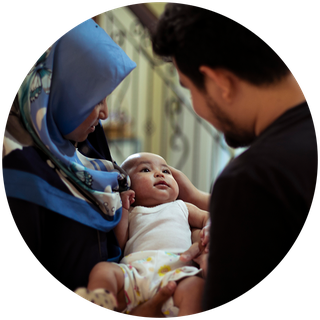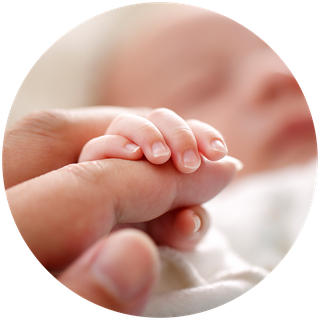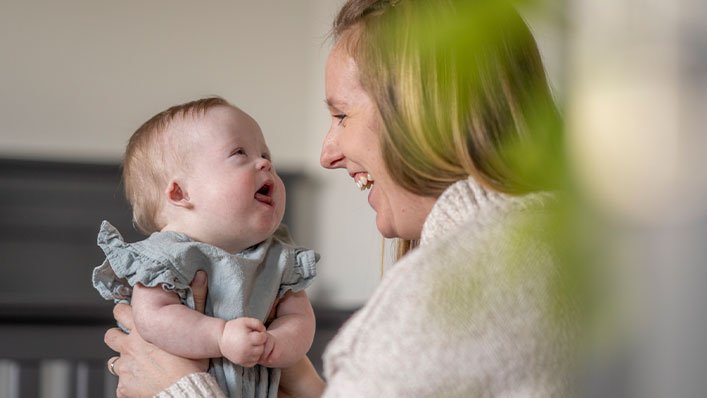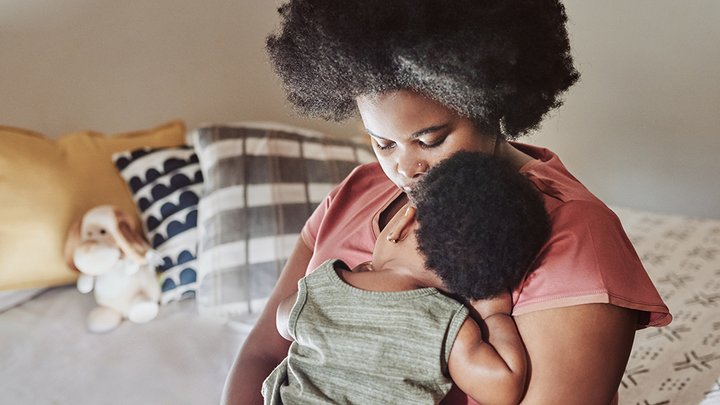Building a close relationship with your baby
A child’s experiences in their early years shapes their rapidly developing brain. This is an important opportunity for you to give your baby the best start in life.
It is your baby’s experiences with you and with the world around them, that make connections in their brain.
Everyday moments create connections
When you offer a warm and loving response to your baby’s needs, you are laying the building blocks for their future health and happiness.
This might be easier than it sounds. For example, think about how many times you will change your baby’s nappy.
Each time you talk to them, sing to them, look into their eyes, respond to sadness with warmth, love and reassurance you are meeting their needs.
Other moments that help a baby make healthy brain connections include being touched, stroked, rocked, fed, cuddled and comforted.
This is an important time not just for their physical development, but also for learning about their emotions and how your baby interacts with others.

Did you know?
A baby's brain has 100 billion brain cells at birth, but not many connections (these are known as synapses) between them. These connections are wired up by love, affection and closeness.
Why is bonding with my baby important?
Your relationship with your baby is the way that you feel close and connected to them.
For some parents and carers, this may happen in pregnancy or soon after birth. For others, it can take some time for a bond to grow.
This is OK and every parent or carer will bond at their own pace.
Building a secure relationship with your baby helps them develop into happy and healthy children.
It also helps them manage their emotions, develop confidence, and learn new things.
It will make them more resilient in later life too, helping them be more able to cope with life's ups and downs.
During pregnancy
In pregnancy there is lots you can do to help your baby feel soothed and secure.
Babies in the womb are aware of sounds, touch and movement and will recognise familiar smells and sounds as soon as they are born, including your voice.
Stroking your bump, singing to baby and thinking about their future, are all good for your unborn baby.

How to bond with your baby
Try not to worry if you're not sure where to start, there are lots of things you can do to build your relationship with your baby.
Here are some things you can try:
- if they're crying, try to imagine what they're thinking and cuddle and comfort them
- when they're reaching to you, hold them. Skin-to-skin contact is best when you can
- respond positively to any noises they make
- play with them
- talk, read and sing to them
- make eye contact with them
Why am I finding it hard to bond with my baby?
Sometimes it might feel hard to bond with your baby. There are lots of reasons, including:
- having had difficult experiences earlier in your life
- difficulties with conception or pregnancy
- miscarriage or baby loss
- mental health difficulties
- experiencing stress, such as financial or relationship difficulties
It’s not unusual for parents and carers to struggle, and there is help available if you need it.
If you are concerned that the bond with your baby isn't developing, talk to your midwife, health visitor or doctor.
You can also find support at your local family hub. Find out if there’s a family hub in your area on gov.uk.
It's important for you to have the support you need so you can feel safe and secure with your baby.
Coping when things get tough
We might not always be as patient and warm as we would like. After all, caring for a baby can be a challenge, especially when we are tired.
What is important is trying to re-connect with your baby when you can.
Babies will then learn that your relationship is safe and secure, and you will be there, even after things have been tough.



